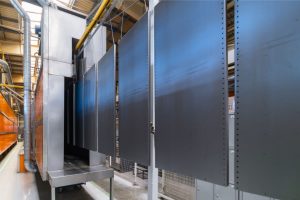What happens when you spray coat metal: six effects
A coat of paint may be all that is needed on simple castings; however, precision-engineered components require something far more enduring. Components exposed to rigorous environmental conditions have to endure as long as possible, not least because they are often hard to access for repair. The same is true of any component that works hard, such as pistons or turbine blades.
The most versatile surface treatment by far is a plasma spray. The coating can be formulated to provide a wide range of specific properties appropriate for the task in hand, with plasma spray specialists varying the application method to change the surface rather than merely concealing it. Here are just six of the potential benefits of plasma spray treatments.
Surface hardness
Many components need to withstand numerous kinds of attrition once in service, such as abrasion, vibration, impact, flexing, friction, and corrosive conditions. Plasma coatings can increase the hardness of metal and other surfaces by more than double that achievable by methods such as anodising, imparting lubricity and corrosion resilience at the same time.
Size recovery
Durability often depends on a component retaining its precise dimensions; however, over time, it is almost inevitable that moving parts will thin. Thermal sprays can restore the precise dimensions required, keeping the component in service far longer than would otherwise be possible; what’s more, it is considerably cheaper than alternative methods such as plating. The new surface can be identical to the original, or even better.
Oxidation resistance
Under high temperatures, even steel and titanium will oxidise; however, with a tailored spray coating service, life can be radically increased. The treatment is often applied inside jet engines and industrial chimneys.
Thermal barriers
Cycles of heating and cooling degrade most materials quickly by causing fatigue or by opening fissures through which corrosion can penetrate. A sprayed thermal barrier minimises this effect and can even enable you to expose components to temperatures that would normally soften or melt them.
Cavitation resistance
Corrosive environments, such as saltwater, slowly cause pitting and eventually cavities to develop. Thermal spray coatings provide an ideal solution for marine engineering, gas storage tanks and cooling towers, extending their lifetime by decades.
Chemical resistance
Thermal sprays are easy to formulate against specific chemical hazards and are exceptionally long-lasting. Their inert reliability makes them ideal in the food and water supply industries.














Post Comment